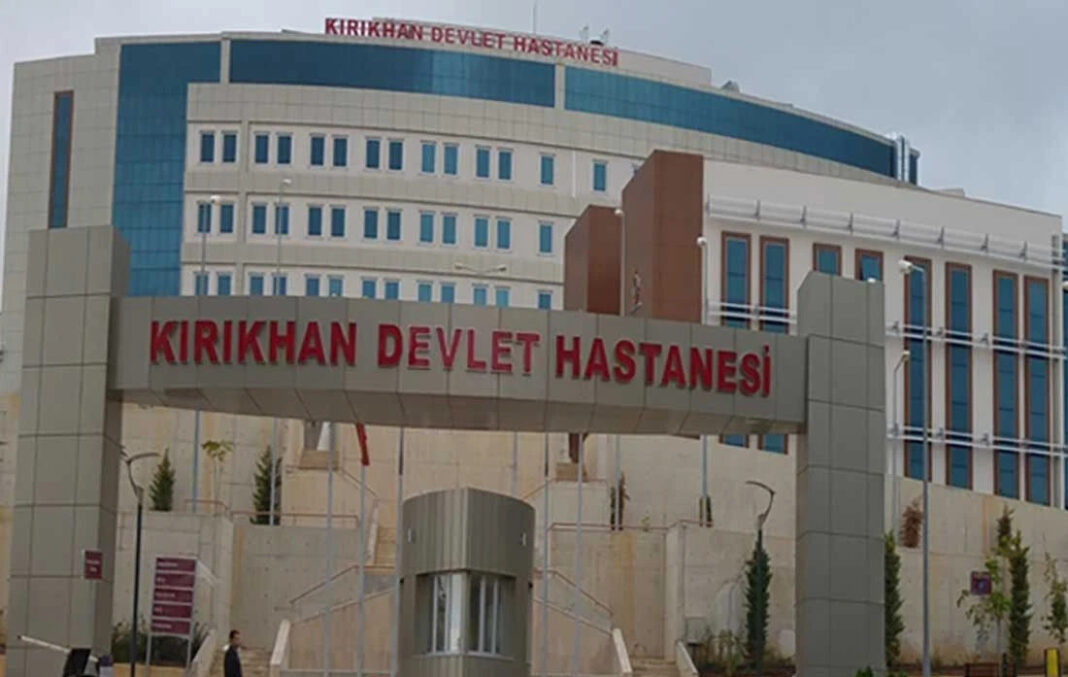Authorities at a hospital in the southern Turkish province of Hatay, which was hit by two major earthquakes last year, allegedly left some 20 patients in intensive care unattended following the temblors for days, leading to their death, and subsequently covered up how they died, the T24 news website reported.
T24 journalist Gökçer Tahincioğlu wrote about the death of the ICU patients at Kırıkhan State Hospital, which was not damaged by the earthquakes, on Thursday, based on the claims of a family member of one of the victims.
The magnitude 7.8 and 7.5 earthquakes affected 11 provinces in the country’s south and southeast on February 6, 2023, killing more than 53,000 people and leaving millions homeless.
The death of many patients at hospitals damaged during the earthquakes have been recorded. The incident at Kırıkhan is different since it involves an undamaged facility that was still in operation.
Murat Şafak, whose father İsmet was one of the ICU patients who died at the Kırıkhan hospital, told Tahincioğlu that his father had been admitted to the hospital 20 days before the earthquakes, where he was in intensive care, connected to a ventilator. However, he was conscious and able to communicate with visitors.
Şafak said he went to the hospital to see his father hours after the earthquakes struck only to find that visitor entry was prohibited, although the building was undamaged. Only the hospital’s emergency ward was operating, overwhelmed with patients injured in the earthquakes. He was told by hospital staff that the ICU patients had been transported the nearby province of Mersin by boat.
Three days later, Şafak received a text message from a nurse instructing him to come to the hospital to retrieve his father’s body.
“My father was lying lifeless in the [hospital] bed where we had left him. The ventilator machine had fallen over. … No one had entered the ICU for three days. Imagine, the hospital was open, but they hadn’t checked any floor except the emergency ward. The doctors, the nurses, they had all fled,” Tahincioğlu quoted Şafak as saying.
The man also said that despite having received his father’s body on February 9, the death certificate listed his date of death as February 6, the day of the earthquakes. However, he said his father’s alleged time of death did not coincide with the time the earthquakes struck.
Şafak claims that this inconsistency occurred as a result of an attempt to create the impression that his father died of natural causes and not because he was neglected after the earthquake. The death certificate attributes the cause of death to “multiple organ failure following the earthquake.”
According to Tahincioğlu, the burial date of February 9 — although the date of death is stated as February 6 on the document — “clearly demonstrates” that İsmet Şafak and other intensive care patients who died were only noticed three days later.
Şafak’s lawyer, Bülent Akbay, filed a criminal complaint against all authorities responsible for the death of İsmet Şafak, including Health Minister Fahrettin Koca, Hatay Governor Rahmi Doğan, Hatay provincial health director Mustafa Hambolat, Kırıkhan district health director Ahmet Yılmaz and Kırıkhan State Hospital chief physician İsmail Zeki Tekiş.
The complaint alleges that İsmet Şafak died from suffocation.
“We will see what stance the judiciary, which has not taken any action against public officials until now, will adopt this time,” the journalist said, referring to Turkey’s long-standing culture of impunity.
In March 2023, an opposition party lawmaker made a similar claim about the ICU patients at İskenderun State Hospital in Hatay, which was damaged in the earthquakes, saying that they died due to a power outage after the earthquakes and the absence of a back-up plan.
Turhan Çömez from the İYİ (Good) Party said the hospital’s generators failed to work, leaving many critically ill patients without oxygen. “It’s scandalous, but the hospital wasn’t prepared for a power outage,” he said. “The ventilators didn’t work because there was no back-up plan, and the generators weren’t operating.”



